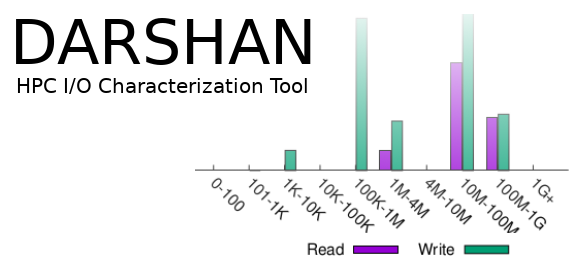A new point release is available for the new modularized version of Darshan (Darshan 3.0). This point release includes the following additions to the initial Darshan 3.0.0 pre-release:
- the ability to configure Darshan’s max memory usage per instrumentation module at configure time or runtime
- use `–with-mod-mem=` configure parameter to set at configure time
- use DARSHAN_MODMEM environment variable to set at runtime
- updated Ruby bindings for the darshan-util library to simplify Darshan log analysis using Ruby (contributed by Matthieu Dorier)
As a reminder, this version of Darshan is experimental and still going through alpha testing, and is thus not suitable for deployment on production systems, yet. We do encourage users to consider using/testing this version as we will be switching over to this branch in the future. Please feel free to provide us with questions, feedback, feature requests, etc.
Relevant docs:
– darshan-runtime installation and usage: darshan-runtime
– darshan-util installation and usage: darshan-util
– docs on new modularized architecture and how to add new instrumentation modules: darshan modularization
